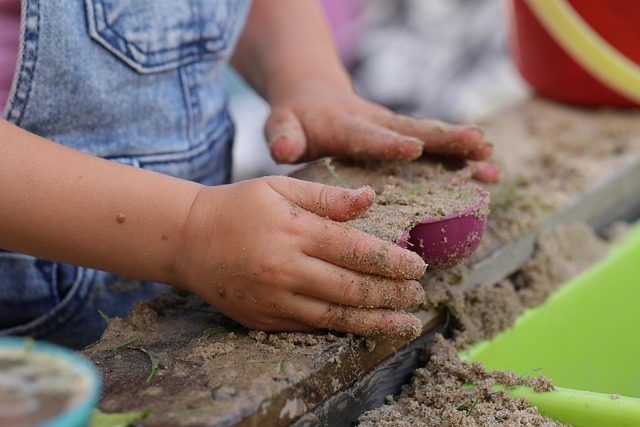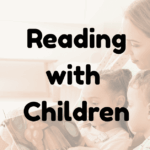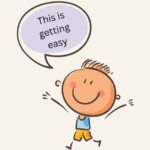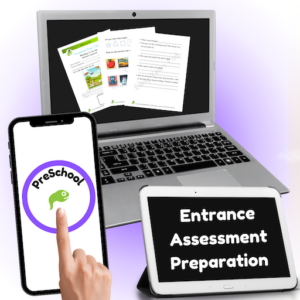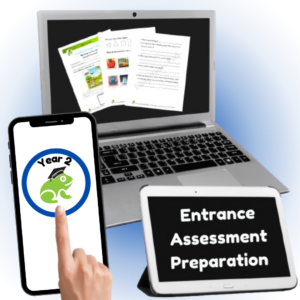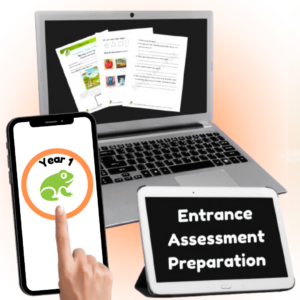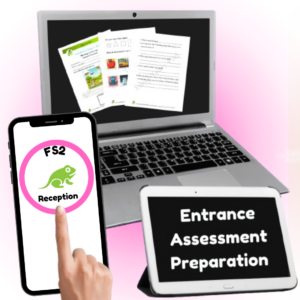How to Prepare Your Child for a Nursery Assessment
A nursery assessment is often needed when a child starts at nursery school. Starting nursery is an exciting and important step in your child’s early learning journey. This falls under the broader category of early years assessments and is designed to be a positive, observational experience. Although the word “assessment” might sound formal, it is simply a way for teachers to understand how best to support your child as they settle into nursery life. All settings will do some form of assessment, whether before entry or as your child joins the setting.
In this guide, we will explore what a nursery assessment typically involves, what educators are observing, and how you can help your child feel confident, calm, and ready for this new adventure.
What is a Nursery Assessment?
A nursery assessment is not a test. It is a relaxed and informal observation carried out by an early years professional. The goal is to understand how your child communicates, interacts, and responds to the environment. Having said that, they might not yet be ready for nursery school. Either way, the teacher will communicate with you about the steps forward.
During a nursery assessment, your child might be asked to:
- Talk about a picture or familiar object
- Follow simple spoken instructions
- Identify basic shapes or colours
- Use fine motor skills with puzzles or building toys
These activities are part of understanding your child’s stage of development. They help teachers plan the right kinds of learning experiences to support a smooth and enjoyable transition into nursery.
You can read more about the wider early years assessment process here…
What Do Educators Look For?
Nursery assessments are usually guided by the EYFS (Early Years Foundation Stage) framework. This framework focuses on seven areas of learning, with special attention given to four prime areas:
- Communication and Language
- Physical Development
- Personal, Social and Emotional Development
- Literacy (emerging skills)
Teachers are not looking for perfect answers. They are observing how your child:
- Expresses ideas and listens to others
- Separates from parents or caregivers
- Engages in play with peers
- Handles small everyday tasks like holding crayons or putting toys away
The aim is to gain a clear picture of your child’s development and personality in a nurturing setting.
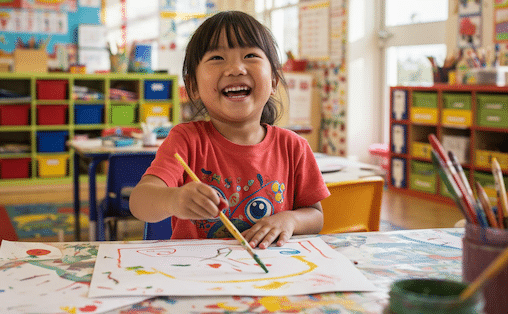
How to Prepare Your Child at Home
1. Talk Throughout the Day
Have conversations with your child regularly. Ask questions like “What did you see on the walk today?” or “How do you think animals sleep?” This helps develop language and confidence.
2. Share Books Together
Reading stories improves vocabulary, concentration, and imagination. It is also a common activity used during nursery assessments.
3. Play Listening Games
Games such as ‘Simon Says’ or matching games with instructions help improve your child’s listening and understanding skills.
4. Encourage Independence
Let your child practise putting on their coat, using the toilet, or packing away toys. These small actions build self-reliance. Resist the urger to just step in and help. The objective is to let them do it, not to get it done.
5. Explore Through Play
Use play to develop skills in a natural way. Activities like sorting, stacking, and matching are often used in assessments and help with early problem-solving and coordination.
Preparing Emotionally — Not Just Academically
Children notice adult feelings, so try to keep your approach calm and encouraging. Explain what will happen in simple, positive terms. For example:
“You are going to play and talk with some kind teachers in a new place. There will be toys, books, and fun things to do. I will be right outside and will see you after.”
If possible, walk past or visit the nursery before the day to make it feel more familiar. Looking at promotional videos or photos can help too. Most schools have good information on their websites, too.
Final Thoughts
Nursery assessments are not something to worry about. They are there to help teachers learn more about your child and how they can be supported in their early years.
If you want to learn more about assessments in nursery, reception, and Year 1, have a look at our full Early Years Assessment guides.
By supporting your child with gentle preparation and a calm attitude, you are helping them start nursery life feeling happy, confident, and ready to explore.
Further Reading
- Farm Animals and their SoundsFarm animals with sounds your child can learn and copy – just because it’s fun.
- Preschool Preparation | Tips to get it right – from the startIf mornings feel like tears, clinginess and last-minute chaos, you’re not alone. Here’s a simple structure that can help you prepare your child for preschool.
- Learn how to correctly write lowercase lettersWe are very excited to introduce our handwriting videos. Handwriting starts with writing each letter correctly. Correct letter formation is the foundation to join letters, then form sounds (phonics), then write sentences and paragrpahs. But it all comes down to forming the letter correctly at the start. See the videos on your preferred platform: Start… Read more: Learn how to correctly write lowercase letters
- Reading with Children: Why It MattersReading with children is one of the most powerful ways parents can support their child’s development. In the British Early Years Foundation Stage (EYFS), we understand that reading is not just for bedtime—it is the foundation for language, learning, and lifelong curiosity. Start Reading from Birth From the earliest days, babies benefit from hearing… Read more: Reading with Children: Why It Matters
- How to Build Vocabulary in children in the Early YearsHow to Build Vocabulary in Children in the Early Years (FS1/Nursery and FS2/Reception) Building vocabulary in young children is one of the most important steps in supporting their early Literacy skills. A strong vocabulary helps children express themselves, understand the world, and build confidence as they prepare for reading and writing. Here are some easy… Read more: How to Build Vocabulary in children in the Early Years

